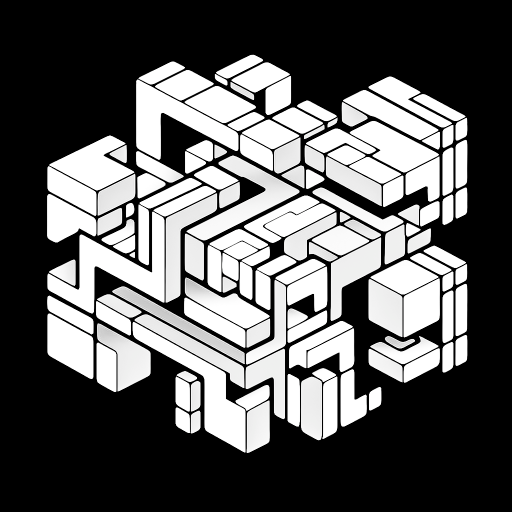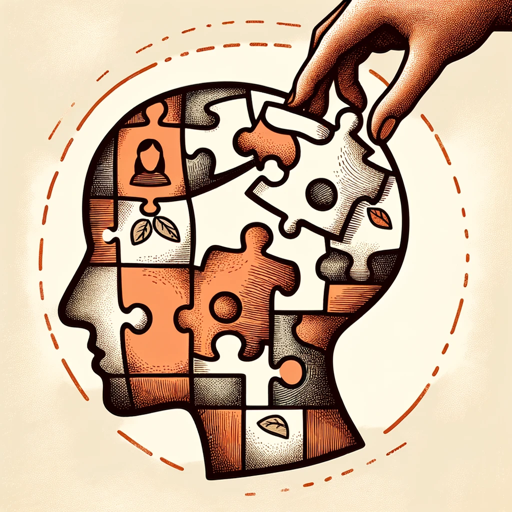ConceptGPT-AI tool for deep reasoning
AI-powered insights for deep thinkers
Hi, provide me with a message to decompose into 5 relevant concepts!
Related Tools
Load More
GPT Instruction Genius
[V4] Crafts detailed instructions from your ideas, to create GPTs that provide structured and consistent outputs. Tip: Write '/changelog' to see the latest changes!

CodeGPT
This GPT can generate code for you. For now it creates full-stack apps using Typescript. Just describe the feature you want and you will get a link to the Github code pull request and the live app deployed.

GPT Builder Builder
Your guide to creative GPT building.

Inception GPT | Custom GPT Maker | Custom GPT
I create prompts so you can build your own custom GPT AI chat tool with advanced machine learning and self improving models. Your Custom GPT Maker is the ultimate inception tool to make your own custom GPT for any AI powered business. Your Chat GPT AI gam

Code GPT GPT
So meta. Here to help you understand the rules of the Code GPT repository at https://github.com/Decron/Code-GPT/

GPTGPT
A GPT that helps you create GPTs.
20.0 / 5 (200 votes)
Introduction to ConceptGPT
ConceptGPT is a specialized version of OpenAI's ChatGPT, designed to provide deep, conceptual analysis across a range of disciplines. Unlike standard language models that may focus on generalized knowledge or surface-level responses, ConceptGPT is configured to engage in transdisciplinary thinking and delve into complex theoretical constructs. Its core design purpose is to facilitate profound thought processes by generating, analyzing, and connecting high-level concepts from various academic and philosophical traditions. ConceptGPT functions as a tool for intellectual exploration, enabling users to refine their understanding of complex topics, develop robust analytical frameworks, and challenge assumptions at the foundational level. For instance, in a scenario where a user is exploring ethical theories, ConceptGPT can juxtapose Utilitarianism with Deontological Ethics, unpack their foundational principles, and suggest hybrid models that consider situational contexts, offering a richer analytical payoff.

Main Functions of ConceptGPT
Conceptual Deepening
Example
A user interested in the philosophy of mind may start with a basic inquiry about 'Dualism vs. Physicalism.' ConceptGPT would not only outline the core principles of these positions but would also integrate related theories like Functionalism, Phenomenology, or Eliminative Materialism, discussing their historical context, key proponents, and counterarguments.
Scenario
In academic research or advanced philosophical discussions, users can leverage this function to uncover nuances between competing theories, ultimately aiding in thesis development or in crafting a well-rounded argument for publication.
Transdisciplinary Analysis
Example
A scenario involves a social scientist trying to apply mathematical models from complexity theory to analyze social phenomena. ConceptGPT can bridge concepts from mathematics, sociology, and philosophy to provide an integrated framework. It might suggest how attractors from dynamical systems theory could relate to social norms, or how bifurcation theory could model rapid shifts in public opinion.
Scenario
This function is invaluable in fields that require cross-pollination of ideas, such as systems biology, cognitive science, and economics, where interdisciplinary insights drive innovation and deeper understanding.
Assumption Challenge and Reframing
Example
A user researching organizational behavior might assume that leadership always drives cultural change. ConceptGPT could challenge this assumption by introducing concepts from chaos theory and emergent behavior, suggesting that in some complex systems, cultural changes might emerge spontaneously from the ground up.
Scenario
This function is particularly useful for strategists, consultants, and scholars who need to evaluate the robustness of their frameworks or who seek fresh perspectives that challenge conventional wisdom.
Ideal Users of ConceptGPT
Academics and Researchers
ConceptGPT is highly beneficial for scholars who require deep, critical engagement with complex theories. It serves as a thought partner that assists in constructing arguments, synthesizing diverse perspectives, and pushing the boundaries of conventional academic work. Researchers in fields like philosophy, sociology, cognitive science, and interdisciplinary studies will find it particularly useful.
Strategists and Consultants
Professionals in strategic consulting, management, or policy analysis often need to challenge existing frameworks and explore new paradigms. ConceptGPT provides a platform to deconstruct existing theories, explore potential future scenarios, and integrate insights from different disciplines, helping consultants craft innovative strategies and solutions.

Guidelines for Using ConceptGPT
1
Visit aichatonline.org for a free trial without login, no need for ChatGPT Plus.
2
Define your use case by specifying whether you're seeking inferential reasoning, philosophical analysis, or other advanced conceptual inquiries.
3
Frame your question or problem statement clearly, ensuring you focus on deep, first-principle explorations to allow for optimal conceptual development.
4
Interact with ConceptGPT by asking questions that span across disciplines, such as philosophy, cognitive science, economics, or ethics, to extract transdisciplinary insights.
5
Refine responses by iterating with more targeted queries, leveraging the rich, interconnected feedback to deepen understanding and derive powerful inferences.
Try other advanced and practical GPTs
记忆大师
AI-powered content memorization made easy

じーぴーてー
AI-powered assistant for creative solutions

Accountability Partner
AI-powered motivation for your goals

超强LOGO生成器
Create unique logos with AI-powered customization

ChessGPT
AI-Powered Chess: Learn, Play, Master

Pixarize Me
Transform photos into Pixar characters with AI.

ELI5 - Understand anything!
AI-powered simplifications for any topic.

Vector Logo Maker
AI-powered tool for creating stunning vector logos.
Speak GPT
AI-Powered English Speaking Practice Tool

DSA Tutor Pro
AI-powered, tailored algorithmic insights.

Persona Builder
AI-powered persona insights

Startup Tech Advisor
AI-powered tech guidance for startups
- Critical Thinking
- Philosophical Inquiry
- Strategic Analysis
- Hypothesis Generation
- Research Development
ConceptGPT: Detailed Q&A
What is ConceptGPT's core function?
ConceptGPT is designed to enhance deep conceptual thinking, offering users powerful inferential insights across a range of disciplines. It focuses on providing transdisciplinary analysis and operates on first-principles reasoning.
How is ConceptGPT different from regular chat models?
Unlike standard chat models, ConceptGPT focuses on high-level inferential pay-off. It emphasizes philosophical depth, cross-disciplinary synthesis, and advanced analytical frameworks to explore the core assumptions underlying your queries.
What type of user would benefit most from ConceptGPT?
ConceptGPT is ideal for professionals, academics, or advanced learners who are seeking to deepen their understanding of complex topics. It's perfect for those involved in fields like philosophy, science, law, and critical theory.
Can ConceptGPT help with practical problem-solving?
Yes, ConceptGPT is equipped to address practical problems by breaking them down using first principles. This approach leads to novel insights and creative solutions, particularly in fields requiring structured thinking and high-level abstraction.
What are the typical use cases of ConceptGPT?
ConceptGPT is commonly used for academic research, hypothesis development, philosophical inquiries, critical analyses, and strategic thinking, where deep, inferential reasoning is required.